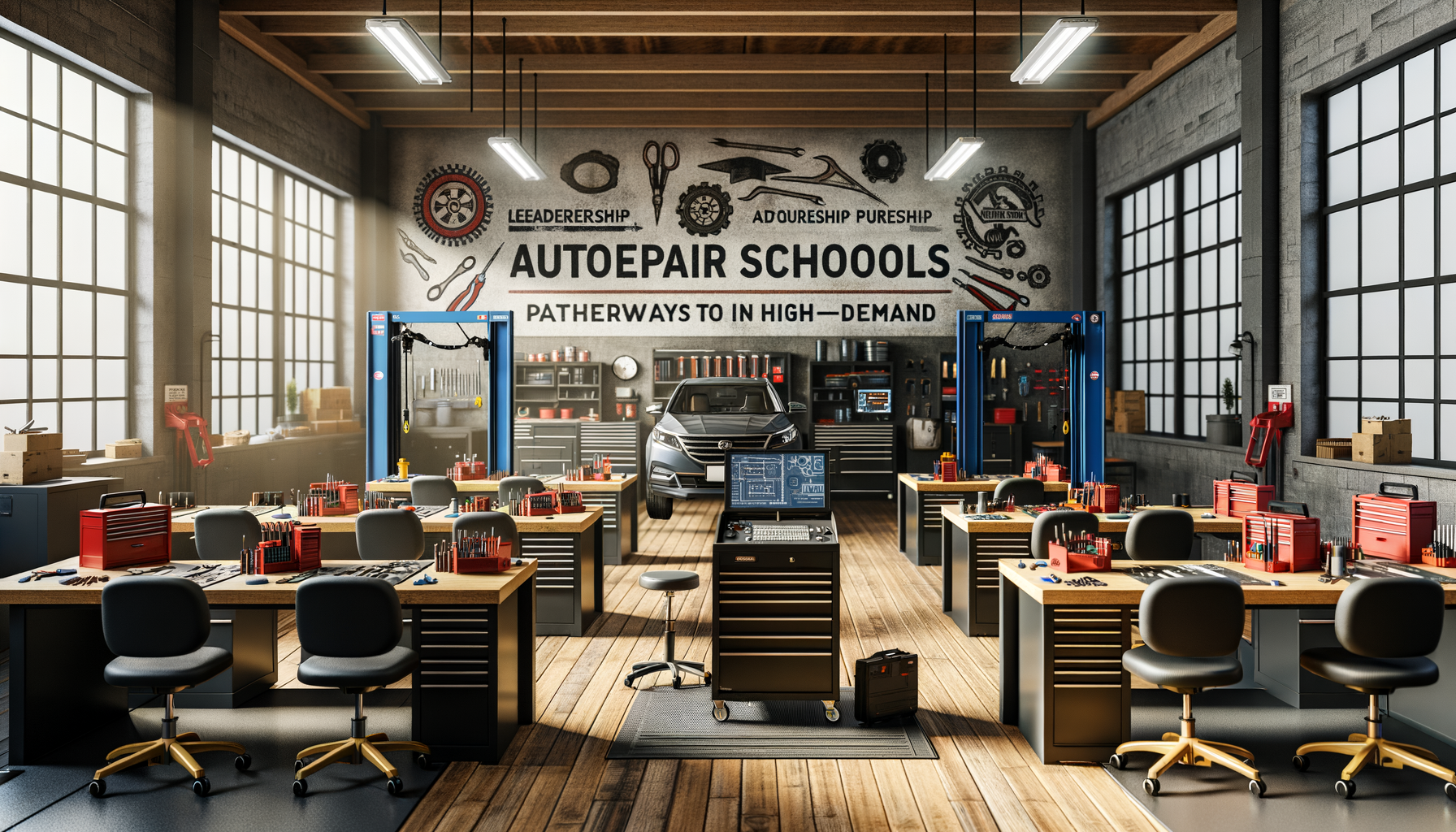The Growing Demand for Skilled Auto Technicians
The automotive industry is undergoing a significant transformation, driven by technological advancements and a shift towards more environmentally friendly vehicles. As a result, the demand for skilled auto technicians who can navigate these changes is on the rise. According to industry reports, there is a projected shortage of over 250,000 auto technicians in the coming years. This gap highlights the critical need for trained professionals who can maintain and repair increasingly complex vehicles.
Auto repair schools are at the forefront of addressing this demand. They provide comprehensive training programs that equip students with the necessary skills to succeed in the industry. These programs often cover a wide range of topics, including traditional mechanical systems, hybrid and electric vehicle technology, and advanced diagnostic techniques. By offering a blend of classroom instruction and hands-on experience, auto repair schools ensure that graduates are well-prepared to meet the challenges of the modern automotive landscape.
Moreover, the growing emphasis on sustainability in the automotive sector has led to an increased focus on hybrid and electric vehicles. Auto repair schools have adapted their curricula to include training on these technologies, ensuring that students are well-versed in the latest industry trends. This adaptability is crucial for preparing students for the evolving needs of the automotive industry and positioning them for successful careers.
Comprehensive Curriculum and Hands-On Training
One of the hallmarks of a quality auto repair school is its curriculum, which should provide a balance between theoretical knowledge and practical skills. Students typically begin with foundational courses in automotive systems, covering topics such as engine repair, brake systems, and electrical systems. As they progress, they delve into more specialized areas, including computer diagnostics, emissions systems, and alternative fuel technologies.
Hands-on training is a critical component of these programs. Auto repair schools often have well-equipped labs where students can practice their skills on real vehicles. This practical experience is invaluable, as it allows students to apply what they’ve learned in the classroom to real-world scenarios. Additionally, many schools partner with local automotive businesses to offer internships or cooperative education opportunities, providing students with exposure to the industry and potential job placements after graduation.
Furthermore, auto repair schools often emphasize the importance of industry certifications. Many programs prepare students to take the Automotive Service Excellence (ASE) certification exams, which are widely recognized as a mark of competence in the field. Holding these certifications can enhance a graduate’s employability and open doors to more advanced positions within the industry.
Career Opportunities and Industry Partnerships
Graduates of auto repair schools have a variety of career paths available to them, thanks to the broad skill set they acquire during their training. Entry-level positions such as automotive technician or mechanic are common starting points, but there are also opportunities to specialize in areas like diesel technology, collision repair, or high-performance engines.
Many auto repair schools have established partnerships with automotive manufacturers and repair shops, which can be a significant advantage for students. These partnerships often lead to job placement programs, where students can transition seamlessly from the classroom to the workplace. Additionally, some schools offer job fairs and networking events, connecting students with potential employers and industry professionals.
The automotive industry is known for its potential for career advancement. With experience and additional certifications, technicians can move into supervisory roles, become service managers, or even open their own repair shops. The skills acquired in auto repair schools are versatile and can be applied in various settings, ensuring that graduates have the flexibility to pursue their career goals.
Technological Advancements and Future Trends
The automotive industry is rapidly evolving, with new technologies continually reshaping the landscape. Auto repair schools play a crucial role in preparing students to adapt to these changes. One of the most significant trends is the rise of electric and hybrid vehicles, which require specialized knowledge and skills for maintenance and repair.
In response, many auto repair schools have expanded their curricula to include training on electric drivetrains, battery systems, and regenerative braking. This forward-thinking approach ensures that graduates are equipped to handle the latest vehicle technologies and meet the demands of an increasingly eco-conscious market.
Another area of focus is the integration of advanced diagnostic tools and software. Modern vehicles are equipped with complex computer systems, and technicians must be proficient in using diagnostic equipment to troubleshoot and repair these systems. Auto repair schools provide students with training on the latest diagnostic technologies, preparing them for the challenges of working with high-tech vehicles.
As the industry continues to evolve, auto repair schools will need to remain agile and responsive to emerging trends. By staying ahead of the curve, these institutions can ensure that their graduates are well-prepared for the future of automotive repair.
Summary: A Pathway to a Rewarding Career
Auto repair schools offer a valuable pathway for individuals seeking a rewarding career in a high-demand field. With comprehensive training programs that blend theoretical knowledge with practical skills, these institutions prepare students for the challenges of the modern automotive industry. Graduates are equipped with the expertise needed to work on a variety of vehicles, from traditional gasoline-powered cars to cutting-edge electric and hybrid models.
By partnering with industry leaders and staying abreast of technological advancements, auto repair schools ensure that their curricula remain relevant and aligned with industry needs. This commitment to excellence positions graduates for successful careers, whether they choose to work in repair shops, dealerships, or as independent business owners.
As the automotive industry continues to evolve, the demand for skilled technicians will only grow. Auto repair schools play a critical role in meeting this demand, providing students with the tools they need to thrive in a dynamic and ever-changing field.








